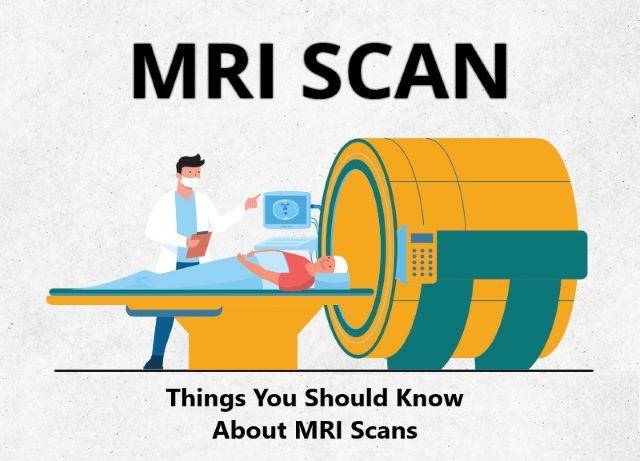You must have heard about the term MRI whenever you visited a hospital, or you must have heard it through someone who has been to a hospital. An MRI scan is a popular imaging technique used by doctors and physicians to study your body.
If you are suggested by your doctor to undergo an MRI scan, there are some things that you need to know beforehand. Moreover, to find an MRI scan centre near you, google “MRI scan near me” to find appropriate results. This post explores the benefits, risks and side effects of an MRI scan.
What Exactly Is an MRI Scan?
MRI stands for magnetic resonance imaging. It is a common procedure around the world and is widely used by doctors to create detailed images of tissues and organs inside the body. Since its invention, scientists and doctors have continued to refine this technology, which has led to evolved MRI machinery today.
Just like ultrasounds, MRI scanning is a non-invasive and painless procedure. An MRI scan uses radio waves, a large magnet and a computer to create a cross-sectional and detailed image of internal structures and organs. The scanner resembles a tube-like tunnel structure with a table in the middle, through which the patient slides in.
An MRI scan is one of the most expensive procedures in India. The MRI scan cost alone can vary depending on the type of MRI. An MRI scan differs from X-Rays and CT scans, as it does not use harmful radiation to examine the body’s organs.
Uses And Benefits of an MRI Scan
The development and evolution of MRI technology in the medical field is a huge milestone for the industry. Doctors, researchers and scientists are able to get a detailed view of the human body, that too without the help of incisions. Below are some of the benefits and uses of how MRI scans are being used by doctors today.
- MRI scans are used to diagnose anomalies in the brain and spinal cord
- They are used to detect tumours, cysts and other irregularities in various parts of the body
- They are also used for breast cancer screening for women who are suspected of the disease
- Doctors also use MRI scans to detect injuries and other abnormalities in the joints, such as knees or the back
- MRI scans are also used to diagnose certain types of heart diseases
- Many suspected uterine anomalies in women who are undergoing evaluation for infertility, can also be detected via MRI scans.
- MRI scans can also detect diseases of the liver and other abdomen-related conditions.
This list, by no means, is exhaustive. There are tons of other uses of why MRI scans are used by doctors today.
Preparations Required Before an MRI Scan
Generally, there are very few preparations required before an MRI scan. On arrival at the hospital or a path lab, the doctor may ask you to change into a hospital gown. Since MRIs use magnets, it is obvious to state that no metal objects are allowed before lying inside the scanner.
Patients who are anxious or nervous about going through an MRI scan should inform the doctors beforehand. To make the procedure more comfortable, the doctor may give some medication to relieve the patient before the scan.
Sometimes, patients also receive an injection of intravenous contrast liquid to improve the clarity of a specific organ or tissue which is relevant to the test. After that, the radiologist will then talk the patient through the process and answer their queries, if any.
The patient will then be helped with the MRI scanner and will be provided with blankets and cushions to ease the process. Headphones or earplugs are also provided to block out the noises of the scanner, which are pretty loud.
Also Read: Role of Arthroscopy in ACL Injury
What Are the Costs of an MRI Scan?
As mentioned before, just like any other imaging test, the cost of MRI scans depends upon a range of factors. MRI scan costs vary from city to city, and from hospital to hospital. Furthermore, getting an MRI scan in a private hospital in a metropolitan city will cost you more than getting it done via a lab centre. Generally, MRI scans cost anywhere between Rs. 1500 to Rs. 25000.
Things To Keep in Mind During the MRI Procedure
Once you are comfortable inside the scanner, the technician will ask the patient via an intercom if you are experiencing any discomfort. They won’t be starting until you are ready and comfortable inside. During the scan, the patient is asked to stay still.
This is a vital necessity since any subtle movement is likely to disrupt the images as if the camera is taking pictures of a moving object. The test machine is really loud, so it is normal to experience any loud clanging noises from the scanner.
Sometimes, the patient might also be asked to hold their breath at times, depending upon the images. Lastly, if the person experiences any discomfort during the scan, they can communicate to the technician via the intercom and ask for the test to be stopped.
Side Effects After an MRI Scan
It is rare to experience any kind of side effects after going through an MRI test. Sometimes, the contrast dye used in the process can cause headaches, nausea or pain and burn at the location of injection for some people.
Very rarely, some people might experience an allergy to the contrast material, leading to itchy eyes or hives. Claustrophobic patients might experience some difficulty while going through the procedure.
How Long Will an MRI Scan Take?
MRI scans usually last anywhere between 20 to 60 minutes, depending upon the number of images required and the part of the body being analyzed. Sometimes, if the pictures after the MRI scan are unclear, the patient might be asked to undergo a second test then and there.
Where Can I Get an MRI Scan Near Me?
You can get MRI scans in any reputed hospital or a good path lab centre. If you live in the Delhi NCR region, City X-Rays and Scan Clinic might be the best option for you. It is a well-renowned diagnostic centre, offering MRI scans, CT scans, PET scans, ultrasounds, X-Rays, blood tests and much more.


